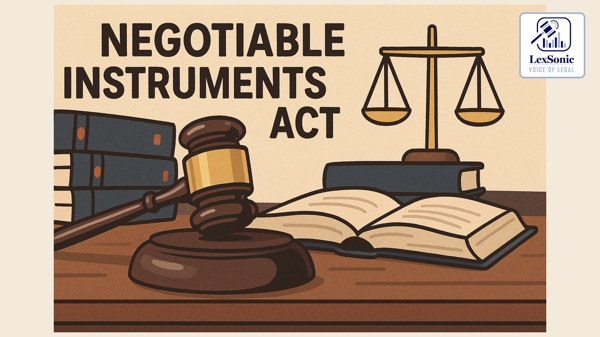Supreme Court Upholds Trial Court's Conviction in Cheque Dishonour Case, Modifies Sentence to Fine.
03 April 2025
Criminal Trial >> Criminal Law | Negotiable Instruments Act >> Criminal Law | Cheque Bounce >> Debt Recovery
The case originated from a complaint filed by the appellant alleging that he had advanced a loan of Rs. 22,00,000 to the respondent no.2, who subsequently issued a cheque for the same amount. The cheque, however, was dishonoured by the bank with the remark "payment stopped by drawer." Despite a legal notice sent by the complainant, the accused failed to make the payment, leading to the filing of a complaint under Section 138 of the Negotiable Instruments Act, 1881.

The Trial Court, 1 after considering the evidence, found the accused guilty and sentenced him to one year of simple imprisonment along with a fine of Rs. 35,00,000. The Appellate Court upheld this order. However, the High Court, in its revision petition, allowed the accused's plea, citing inconsistencies in the complainant's version, particularly regarding the details of his bank account and the dates of the transaction.
The Supreme Court, hearing the appeal against the High Court's order, meticulously examined the facts and submissions of both parties. The counsel for the appellant argued that the High Court had erred in re-appreciating the evidence and overturning the concurrent findings of the lower courts. It was emphasized that the accused had admitted his signature on the cheque, triggering the presumption under Sections 118 and 139 of the Negotiable Instruments Act, placing the burden of proof on the accused to raise a probable defence. The appellant's counsel also highlighted the suspicious timing of the accused's intimation to the police about the alleged loss of the cheque, which was much after the cheque presentation date.
However, the Supreme Court, in its analysis, noted that the accused had admitted his signature on the cheque and his defence of the cheque being lost was not substantiated by credible evidence, especially considering the delay in informing the police. The court also addressed the argument regarding the non-joinder of the partnership firm, relying on the principle that the signatory of the cheque, who is also in charge of the firm, can be held liable under Section 138/141 of the Act.
Consequently, the Supreme Court allowed the appeal, setting aside the High Court's order. While the natural consequence would have been the revival of the original sentence, the court, considering the age of the accused and the plea for a monetary penalty, modified the sentence to a fine of Rs. 32,00,000 to be paid to the appellant within four months. The court clarified that failure to pay the fine within the stipulated time would result in the reinstatement of the original sentence of imprisonment and the full fine amount of Rs. 35,00,000 being payable to the complainant.
Section 138, Negotiable Instruments Act - 1881
Section 141, Negotiable Instruments Act - 1881
Negotiable Instruments Act, 1881
